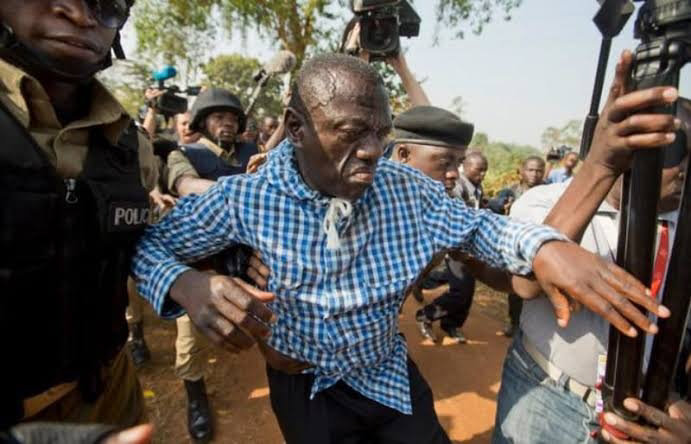Critique of the National Assembly's Public Participation Process in the Impeachment Motion of Deputy President Gachagua
The recent handling of public participation in the impeachment motion against Deputy President Rigathi Gachagua has raised serious concerns regarding transparency, accessibility, and the overall fairness of the process. Public participation, as enshrined in the Constitution of Kenya, is a fundamental pillar of democracy, ensuring that the electorate, who are the backbone of any political system, have a voice in critical decisions. However, the manner in which this public participation process has been conducted has left many questioning whether it was deliberately structured to bar a significant portion of the electorate from having their say.
Limited Access Points for Public Participation: A Deliberate Scheme?
One of the most glaring issues with the public participation process is its limitation to one center per county. The decision to only have a single venue for each county severely restricts the accessibility for many Kenyans, particularly those from remote areas or those facing financial constraints. Given that the election of the Presidency was conducted at the polling station level, it would seem reasonable that public participation on such an important matter as impeachment should also be equally accessible. With each county comprising numerous constituencies and wards, it would make more sense to set up at least one center per ward. This would ensure a more inclusive and representative turnout, allowing the public who elected the leadership to have an equal chance to weigh in on its potential removal.
The decision to centralize public participation at the county level raises suspicions of deliberate exclusion. Could this be a calculated move to limit participation to a smaller, more controlled group of people? By making it inconvenient for many, especially those from rural areas, to travel long distances to the county headquarters, the process seems biased from the onset. Such centralization not only undermines the principle of public participation but also questions the motive behind restricting access. Is the goal to control the narrative and manage the outcome, thereby skewing the results in favor of those pushing for impeachment?
Fair Representation: Who Is Really in Charge of the Process?
Another critical issue is the question of who is in charge of overseeing public participation in this impeachment process. It is concerning that the process appears to be spearheaded by the very MPs who are backing the impeachment motion. This presents a clear conflict of interest. The role of MPs should be to represent the people’s interests objectively, not to push their personal or political agendas by manipulating public participation to produce the desired outcome.
There is a genuine fear that if the very MPs driving the impeachment are also in charge of the public participation process, they could bias the participation in favor of their agenda. For instance, they might invite only those who support the impeachment or organize the process in such a way that opposition voices are marginalized or excluded. This would not only lead to unrealistic results but also diminish the integrity of the entire process.
For a fair and transparent process, the management of public participation should be entrusted to an independent body, free from the political interests of those involved in the impeachment. This would help ensure that all voices are heard, not just those that align with the MPs’ interests. Furthermore, such an independent body could oversee the logistics, ensuring that there are sufficient access points for all members of the public to participate.
Urgency Over Fairness?
Another point of contention is the apparent rush to carry out the impeachment process. The National Assembly has moved with unusual speed, almost as though the impeachment of Deputy President Gachagua is a matter of life and death. This raises questions about the motives behind the urgency. Why has this issue been fast-tracked when there are other pressing national concerns that require attention, such as the unresolved Adan Deal at Jomo Kenyatta International Airport (JKIA), which has been dragging on without resolution?
The speed of this impeachment process without thorough consideration of public participation mechanisms seems both hasty and ill-advised. Impeachment is a serious and solemn process, one that should not be rushed for political expediency. A hurried process only risks undermining the credibility of the National Assembly and deepening public distrust in the political system. The public deserves to know that due process is being followed and that the leadership they elected is not being removed without their full and fair participation.
The public participation process in the impeachment motion against Deputy President Gachagua appears deeply flawed. The decision to limit participation to a single center per county disenfranchises a significant portion of the electorate, particularly those from remote or rural areas. Additionally, the involvement of MPs who are pushing for impeachment in the oversight of public participation presents a clear conflict of interest, calling into question the fairness of the process.
Finally, the urgency with which the impeachment is being pursued, despite other pressing national issues, raises concerns about the true motives behind the motion. For public participation to be meaningful, it must be accessible, inclusive, and free from political interference. Without these elements, the process becomes a mere formality, serving only to legitimize a pre-determined outcome rather than reflecting the will of the people. It is essential that the National Assembly reconsiders its approach to this matter and ensures that public participation is conducted in a manner that truly honors the spirit of democracy.









Comments
Post a Comment